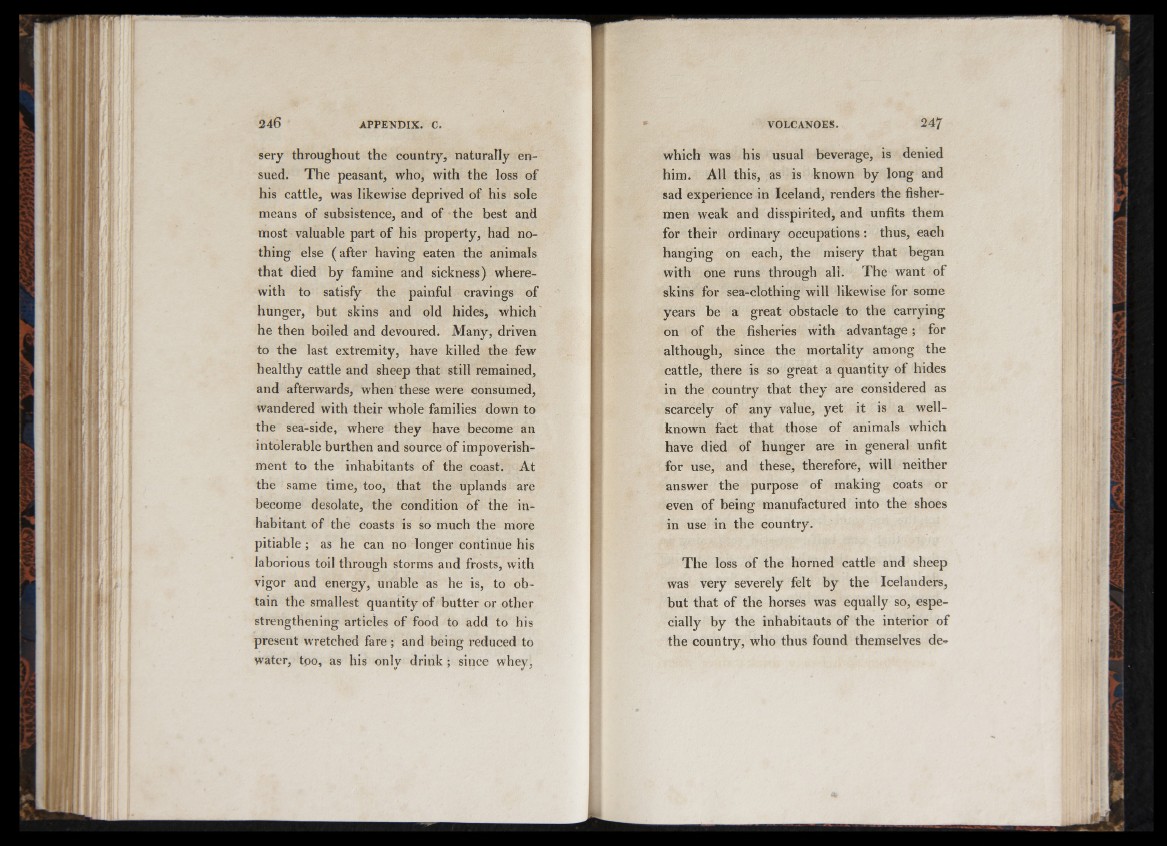
sery throughout the country, naturally ensued.
The peasant, who, with the loss of
his cattle, was likewise deprived of his sole
means of subsistence, and of the best and
most valuable part of his property, had nothing
else (after having eaten the animals
that died by famine and sickness) wherewith
to satisfy the painful cravings of
hunger, but skins and old hides, which
he then boiled and devoured. Many, driven
to the last extremity, have killed the few
healthy cattle and sheep that still remained,
and afterwards, when these were consumed,
wandered with their whole families down to
the sea-side, where they have become an
intolerable burthen and source of impoverishment
to the inhabitants of the coast. At
the same time, too, that the uplands are
become desolate, the condition of the inhabitant
of the coasts is so much the more
pitiable; as he can no longer continue his
laborious toil through storms and frosts, with
vigor and energy, unable as he is, to obtain
the smallest quantity of butter or other
strengthening articles of food to add to his
present wretched fare; and being reduced to
water, too, as his only drink; since whey,
which was his usual beverage, is denied
him. All this, as is known by long and
sad experience in Iceland, renders the fishermen
weak and disspirited, and unfits them
for their ordinary occupations: thus, each
hanging on each, the misery that began
with one runs through all. The want of
skins for sea-clothing will likewise for some
years be a great obstacle to the carrying
on of the fisheries with advantage; for
although, since the mortality among the
cattle, there is so great a quantity of hides
in the country that they are considered as
scarcely of any value, yet it is a well-
known fact that those of animals which
have died of hunger are in general unfit
for use, and these, therefore, will neither
answer the purpose of making coats or
even of being manufactured into the shoes
in use in the country.
The loss of the horned cattle and sheep
was very severely felt by the Icelanders,
but that of the horses was equally so, especially
by the inhabitauts of the interior of
the country, who thus found themselves de